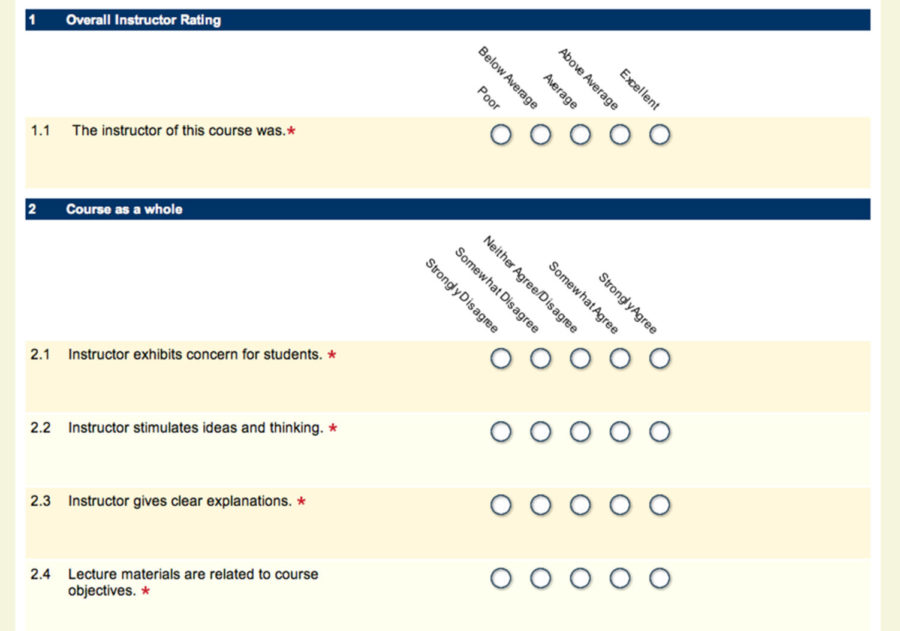Editorial: Value of online course evaluations
Students must fill out their online course evaluations to help their professors improve their teaching styles.
December 13, 2013
‘Tis the season for students to be receiving email after email requesting that they take course evaluations. These “gentle” reminders pop up every day, with increased frequency the longer a student waits.
In-class course evaluations are becoming more rare with the passing of each semester. Rather than taking the time (and paper) necessary to conduct these evaluations during lecture, the university has decided to make the process electronic, with notifications sent to students’ university email addresses.
The benefit of these electronic evaluations is, as mentioned, that they save time and the cost of paper. It must get a little pricey to provide the forms for every student, in every class. Professors are informed of the percentage of students who have taken the evaluations and can then remind their classes to do them if they haven’t yet.
But they can’t force students to take the course evaluations. Unlike paper, in-class evaluations, where all students who are present fill out the form, there is nothing truly requiring a student to fill out the electronic evaluations. Some choose to do so, and others simply do not. Some might argue that online evaluations evoke honesty through a sense of anonymity, but since teachers are supposed to leave the room during paper evaluations, the effect should be the same.
When a particular class has really affected you, either by making you intolerably furious or opening up a new world of knowledge, you might be coerced into taking the online evaluation. It only takes a few minutes, and letting a professor know your love or hate for them can be very satisfying. It can feel particularly good to rip into a teacher who you feel has treated you unfairly, or is uncommitted to their job. Similarly, feeling a connection with a teacher who has helped you quite a bit can be expressed through these end-of-semester reports.
However, the majority of classes inspire neither love nor loathing. The course evaluation emails for these classes are the ones that are repeatedly seen, marked as “read” or “spam,” and consequently forgotten.
So, why does it matter?
These course evaluations serve the purpose of letting professors know in which areas they excel, or alternatively, fall behind. Rating certain parts of the course in bubble sheets on one-through-five scales directly shows faculty how students think they are doing. More importantly, filling out the comment sections with helpful recommendations gives lecturers an idea of precisely what students want to see more of.
Additionally, in these evaluations student rank the difficulty of the class; with enough evidence, a professor may be swayed to make their course more or less challenging in future semesters.
Of course there are those professors who don’t care what their course evaluations say. Some may shrug off positive and negative comments alike, and ignore the pleas and advice of their students. However, for each of these professors there are more who really do care. Maybe they don’t care if you actually like their class, but they care about the best way to make you learn.
In the end, most professors can glean some useful information from these course evaluations. But that information is lost when no students fill out the course evaluations.
Students should reconsider taking the time to fill out evaluation forms before they delete those emails. It could change the way a subpar professor teaches or encourage a good one to continue what they are doing.
Additionally, the university should ask itself if the professor ratings and comments are worth the money spent on paper. If improving the education system is so important to Iowa State, we should at least consider bringing back the paper forms to collect the largest pool of data.
In any case, prepare yourselves for the flood of evaluation notifications that have already started pouring in and, if you care about the improvement of our academic environment, take the time to fill them out.

















